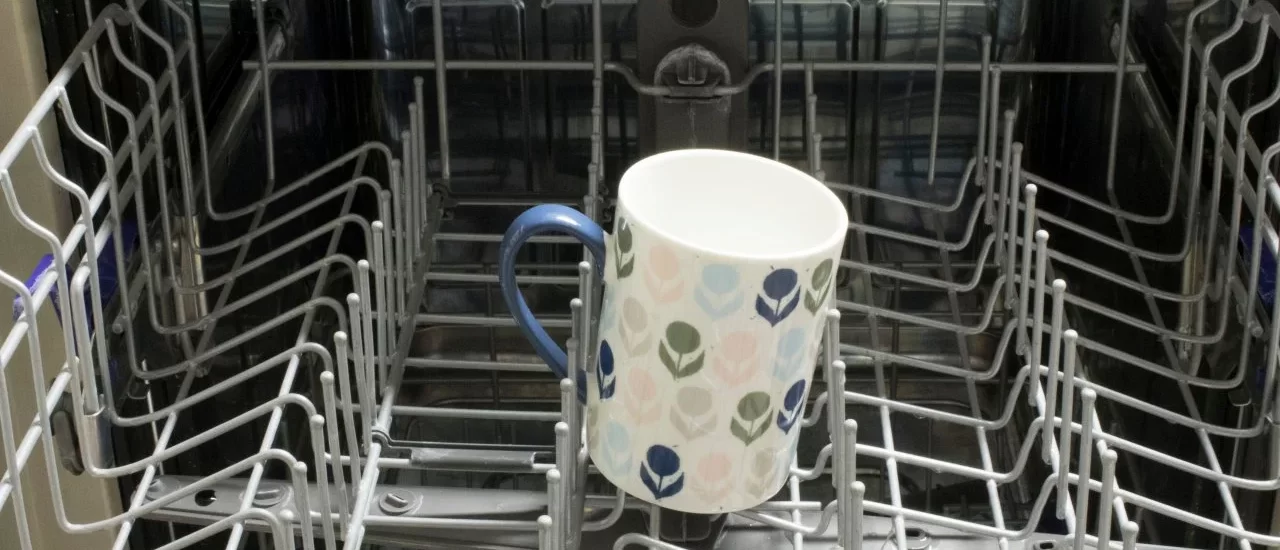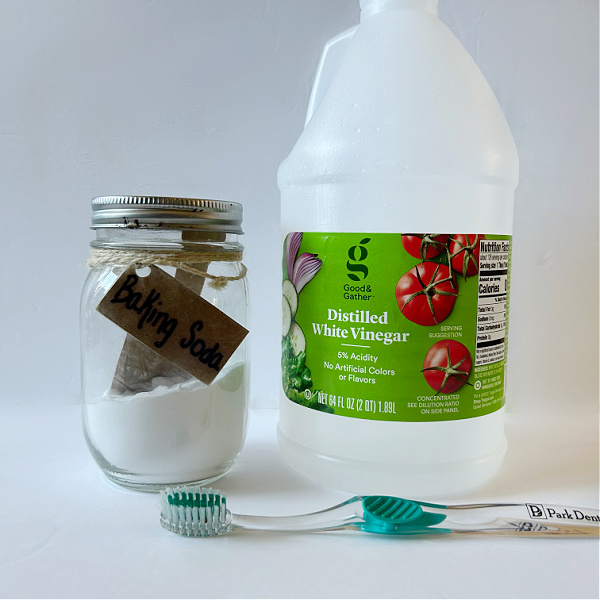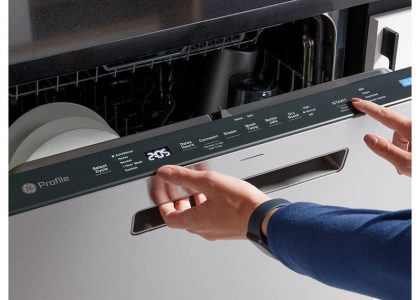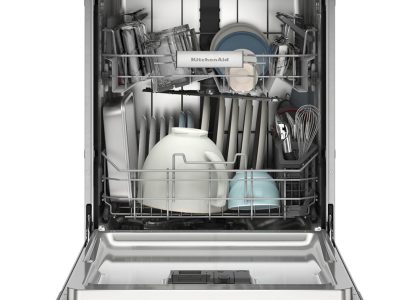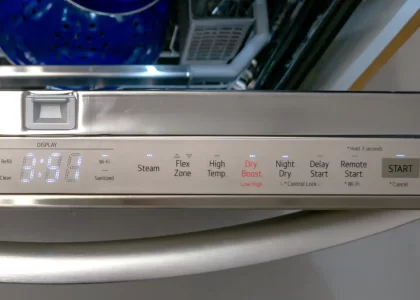Why Use Vinegar in Your Dishwasher
Using vinegar in your dishwasher offers several benefits. Here’s why it’s a good idea:
- Natural Cleaning Agent: Vinegar is a natural product that helps in cleaning without leaving harmful residues.
- Economical: Vinegar is cost-effective compared to specialized dishwasher cleaning agents.
- Deodorizes: It can neutralize odors, leaving your dishwasher smelling fresh.
- Removes Buildup: Vinegar effectively breaks down limescale and mineral deposits.
- Eco-Friendly: It’s a green alternative to chemical cleaners, reducing environmental impact.
Consider how much vinegar to clean dishwasher is optimal for these benefits. Strike a balance to ensure thorough cleaning while caring for your appliance.
The Ideal Vinegar Dosage for Dishwasher Cleaning
Finding the right amount of vinegar for cleaning your dishwasher is key. You want enough to clear out the grime and odor but not so much that it could damage your machine. Here’s a quick guide:
- Regular Maintenance: For routine cleaning, use 1 cup (240 ml) of white vinegar.
- Heavy Buildup: If you are dealing with hard water stains or heavy buildup, increase to 2 cups (480 ml).
- Small Dishwashers: For compact or countertop models, half a cup (120 ml) may suffice.
Pour the vinegar into the bottom of the empty dishwasher. Run it on a hot water cycle. This high-heat setting will activate the vinegar, helping it to dissolve buildup more effectively. Remember, the goal is to figure out how much vinegar to clean dishwasher effectively without overdoing it. Start with these measures and adjust if needed, ensuring that your dishwasher works efficiently and stays in good condition.
Preparing Your Dishwasher for Vinegar Cleaning
Before you start pouring vinegar into your dishwasher, some preparation is essential. This ensures that the vinegar reaches all parts of the appliance and does the job without any hindrances. Follow these steps to prepare your dishwasher for a vinegar cleaning cycle:
- Empty the Dishwasher: Remove all dishes, utensils, and racks. You want an empty space for the vinegar to spread out.
- Inspect and Clear Debris: Check the dishwasher filter and drain area. Remove any food particles or debris to prevent blockages.
- Wipe Down the Interior: Use a damp cloth to wipe down the interior surfaces. Pay special attention to the door edges and bottom of the machine.
- Check the Spray Arms: Ensure the spray arms are free from obstructions, as blocked nozzles can affect cleaning efficiency.
- Ensure Proper Settings: Select a hot water cycle for the most effective vinegar cleaning. Hot water helps vinegar work better.
By following these simple steps, you’ll make sure the dishwasher is ready for cleaning with the right amount of vinegar. This preparation will help achieve the best results, keeping your appliance in top condition.
Step-by-Step Guide to Cleaning with Vinegar
Cleaning your dishwasher with vinegar is straightforward. Follow these steps for a successful vinegar cleaning cycle:
- Measure the Vinegar: Depending on your needs, measure out the correct amount of white vinegar. Use 1 cup for regular maintenance or up to 2 cups for heavy buildup.
- Pour the Vinegar: Place the vinegar at the bottom of the empty dishwasher. This ensures even distribution during the cycle.
- Run the Dishwasher: Choose the hottest water cycle available. Heat helps vinegar work more efficiently by breaking down grime.
- Wait for Completion: Let the dishwasher run its full cycle. The vinegar will clean and deodorize your machine as it goes.
- Inspect the Dishwasher: After the cycle, open the dishwasher and inspect. Look for any remaining spots or buildup.
- Rinse if Needed: If you notice a strong vinegar smell or residue, run a short rinse cycle with just water.
- Reload the Dishwasher: Once the dishwasher is dry and free from odors, you can put back the racks and load your dishes.
Remember, the key is to understand how much vinegar to clean dishwasher effectively without harm. By following these clear steps, you’ll maintain a clean and fresh dishwasher with every cycle.
Additional Tips for Enhancing Dishwasher Performance
Beyond knowing how much vinegar to clean dishwasher, there are other steps to enhance your dishwasher’s performance. Here are some additional tips to get the most out of your machine:
- Hot Water Runs: Periodically run a cycle with hot water and no dishes to keep the inner workings clean.
- Regular Filter Checks: Clean the dishwasher filter regularly to prevent clogs and maintain efficiency.
- Proper Loading: Load your dishwasher correctly, ensuring that water sprays reach all dishes evenly.
- Use Rinse Aid: Alongside vinegar, use a rinse aid to reduce spots and improve drying.
- Keep Sprayer Arms Clear: Inspect and clean sprayer arms to make sure water flows without obstruction.
- Avoid Overloading: Do not overload the dishwasher. It hinders cleaning and strains the appliance.
By integrating these tips into your dishwasher maintenance routine, alongside vinegar cleaning, you’ll extend the lifespan of your appliance and boost its cleaning power. Remember, routine care is the best way to keep your dishwasher running smoothly.
Safety Precautions When Using Vinegar in Appliances
While vinegar is a safe and natural cleaner for dishwashers, it’s important to use it correctly to avoid damage. Here are some safety tips to keep in mind:
- Check Manufacturer Guidelines: Always refer to your dishwasher’s manual. Some manufacturers may advise against vinegar.
- Use White Vinegar: Stick to white vinegar for cleaning. It is less acidic than other types, like apple cider vinegar.
- Don’t Mix with Bleach: Never mix vinegar with bleach. This combo produces harmful gases.
- Dilute if Necessary: If your dishwasher is sensitive, dilute the vinegar with water.
- Use a Bowl or Dish: Place vinegar in a dishwasher-safe bowl on the top rack to prevent direct contact with appliance parts.
- Check for Rubber Parts: Frequent use of vinegar may wear out rubber seals over time. Inspect them regularly.
- Airtight by Other Cleaning Agents: Some dishwasher detergents may react with vinegar. Run vinegar cycles separately.
By following these precautions, you can safely use vinegar in your dishwasher and other appliances without worry.
Addressing Common Myths About Vinegar Cleaning
When it comes to using vinegar for cleaning dishwashers, there are a few myths that need clarification. Understanding these can help you use vinegar more effectively without hesitations. Here are common misconceptions addressed:
- Myth: Vinegar can damage your dishwasher: In reality, using the correct dosage of white vinegar, as recommended, will not harm your appliance. It’s safer compared to harsh chemicals.
- Myth: Vinegar cleans all germs and bacteria: While vinegar is a good cleaning agent, it does not disinfect completely. For sanitizing purposes, follow up with a suitable disinfectant if needed.
- Myth: Vinegar is the best cleaner for all parts of the dishwasher: Vinegar is effective for many parts but may not be suitable for rubber seals or certain metals over long-term use. Check the manufacturer’s recommendations.
- Myth: You can clean with vinegar alone: For best results, remove food particles and debris first. Vinegar works best when combined with physical cleaning methods.
- Myth: The more vinegar, the better: This is not always true. Using how much vinegar to clean dishwasher is vital to effectiveness. Overdoing it can lead to a strong odor and potential wear on appliance parts.
By dispelling these myths, you can clean your dishwasher with vinegar confidently, knowing how much vinegar to clean dishwasher is just right for maintaining its performance without damage.
Maintaining Your Dishwasher Post-Cleaning
After using vinegar, keep your dishwasher in top shape with these post-cleaning maintenance tips:
- Dry the Dishwasher: Leave the door ajar after the vinegar cycle to air dry.
- Regular Inspections: Check for lime and soap deposits monthly. Clean them promptly.
- Keep It Stocked: Run your dishwasher regularly. This prevents buildup and keeps seals moist.
- Softening Hard Water: If you have hard water, consider a water softener to reduce mineral buildup.
- Refresh with Vinegar: Periodically use vinegar to keep the dishwasher fresh and clean.
By observing how much vinegar to clean dishwasher and the rhythm of maintenance, you’ll ensure it operates efficiently for years. Small, consistent efforts can prevent bigger problems down the line.

